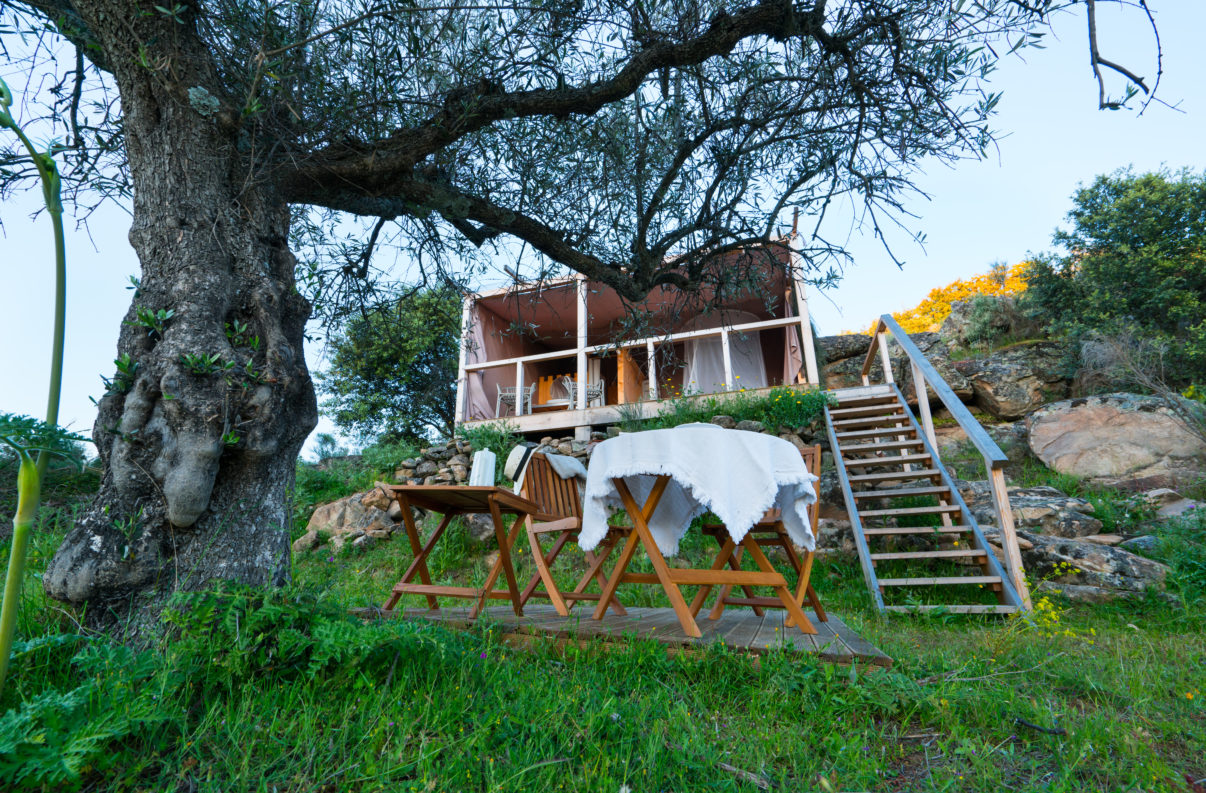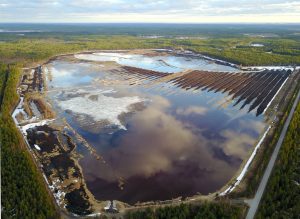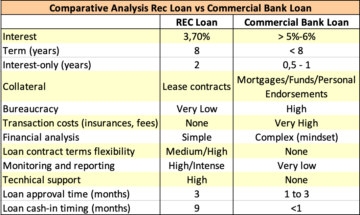Members of the European Rewilding Network enjoy access to financial support from Rewilding Europe Capital. The latest network webinar saw participants learn more about this funding facility, and how to make the best use of it.

The business case for rewilding
Today the rewilding of Europe is underpinning the development of an increasing number of nature-based businesses, with the restoration of wildlife, landscapes and natural processes providing jobs and income for Europeans on a growing scale. With access to finance for such businesses still limited in many areas, Rewilding Europe Capital (REC) – Rewilding Europe’s enterprise loan facility – continues to play a key role in this trend.
By the end of 2018 REC had disbursed loans totalling more than 1.3 million euros to 20 rewilding-related enterprises. REC has received finance from the Dutch Postcode Lottery, and continues to disburse 6 million euros’ worth of funds made available through the European Investment Bank’s Natural Capital Financing Facility.
Rewilding webinar for members

All members of the European Rewilding Network (ERN) have access to REC. An ERN webinar held on August 30 saw a record-breaking 29 participants from 12 European countries come together to learn about the opportunities arising from REC.
Presentations were held by Helena Newell, Rewilding Europe’s Enterprise Manager, and Luís Unas, advisor to a Portuguese forestry enterprise that received a REC loan of 600,000 euros at the end of 2018 (REC loans can range from thousands of euros right through to hundreds of thousands).
Newell explained to webinar participants how rewilding is now generating new business opportunities, jobs and income, and how it benefits society by putting areas of land and sea to different use. An example of this is the restoration of peatlands in Finland (also supported by REC), which not only underpins the development of local nature-based business, but also helps to mitigate climate change. She also explained what REC has to offer and the intricacies of the loan application process.
Comprehensive support
Despite Europe’s diverse and frequently awe-inspiring wild nature, and the wildlife comeback now occurring across much of the continent, European nature-based enterprises remain relatively scarce. Nurturing such enterprises isn’t just about lending money.
“Rewilding entrepreneurship is still in its early stages in Europe,” explained Newell during the presentation. “Providing guidance and relevant expertise to new nature-based enterprises is as vital to their sustainability as financial support.”
By the end of 2018, 140 enterprises had received technical and promotional support from Rewilding Europe’s enterprise team,of which 51 had received dedicated training. Many enterprises have also received advice on promoting their business through marketing and communications.
Rewilding forests
Following Newell’s presentation, a talk from Luís Unas gave webinar participants a better understanding of how a REC loan can benefit both wild nature and people in practice.
Unas advises Sociedade Agro-Florestal do Rio Maçãs, a Portuguese forestry enterprise focused on securing communal (largely monoculture) forests and transforming them into more natural forest and woodland habitat. Following the award of a REC loan at the end of 2018, the business is now using the money to lease 3,893 hectares of communal forest in northern Portugal. The aim is to enhance wild nature and boost the value of the forest in terms of nature-based services.
Wildfire prevention
Unas explained how many Portuguese forests, which are situated on rural communal land, comprise mainly monoculture stands of maritime pine and exotic pioneer species such as eucalyptus. In recent years they have either been abandoned or are intensively managed for the production of low-grade timber. With low levels of biodiversity, these forests are increasingly vulnerable to large-scale wildfires, compared to the more open, mosaic landscapes of the past.
Following disastrous wildfires in 2016 and 2017, many Portuguese communities are now demanding different land-use and forest management models offering greater habitat and landscape security, while simultaneously diversifying revenue streams.
“The loan from REC has enabled us to diversify and promote native species forest management in Portugal,” explained Unas. “This, in turn, will bring a financial return by allowing us to blend sustainable forest harvesting with complementary commercial enterprises such as the provision of non-timber forest products, carbon offsetting, and nature-based tourism experiences.”
Comparative advantage
Unas also took time to explain the process of engagement with REC and the Rewilding Europe enterprise team. The first step was to present the project to the REC team, including a business plan summary, followed by completion of the REC Due Diligence template, and a REC team field visit.
The second step was to prepare a business plan fully aligned with rewilding objectives, and to negotiate the terms of the contract. The third step was to sign the contract and receive the loan.
Unas explained why a REC loan was a better option for the Sociedade Agro-Florestal do Rio Maçãsthan a commercial bank loan by presenting the table below. This highlights the most relevant criteria in the loan decision-making process.

Empowering the European rewilding movement
The European Rewilding Network has continued to grow since it was founded in 2013. It now contains 69 rewilding initiatives from 27 European countries (including Rewilding Europe’s eight operational areas).
The ERN operates on a stronger together philosophy, promoting rewilding as a conservation approach. Through the year, members meet regularly via webinars to share knowledge, insight and examples of best practice. The presentations from webinars are stored on the ERN Forum, a real-time platform for discussions and exchange between members.
Rewilding Europe extends a warm welcome to rewilding initiatives that are interested in joining the European Rewilding Network.
